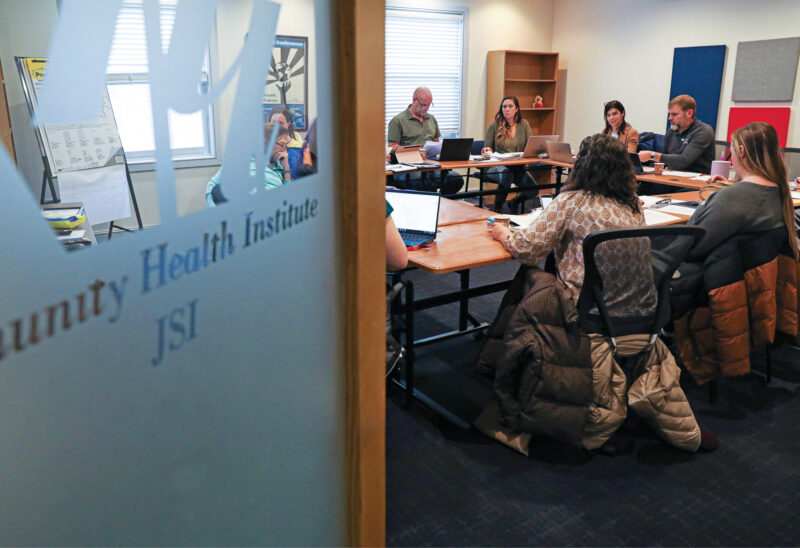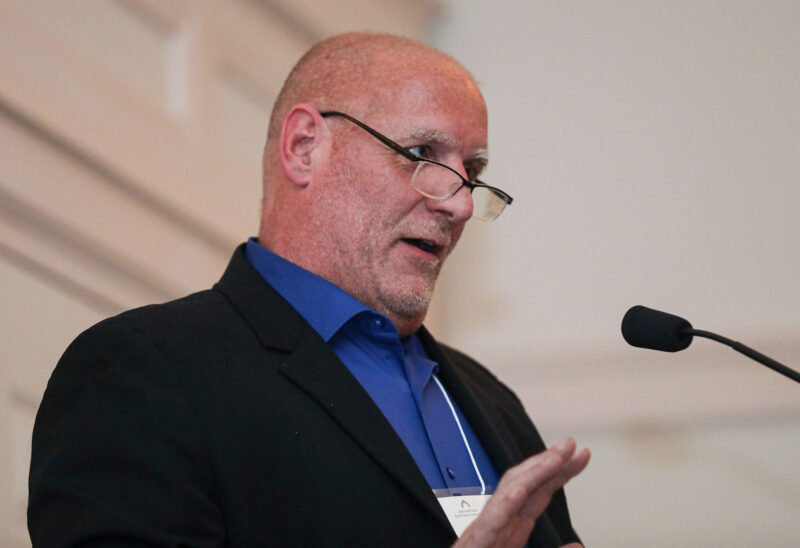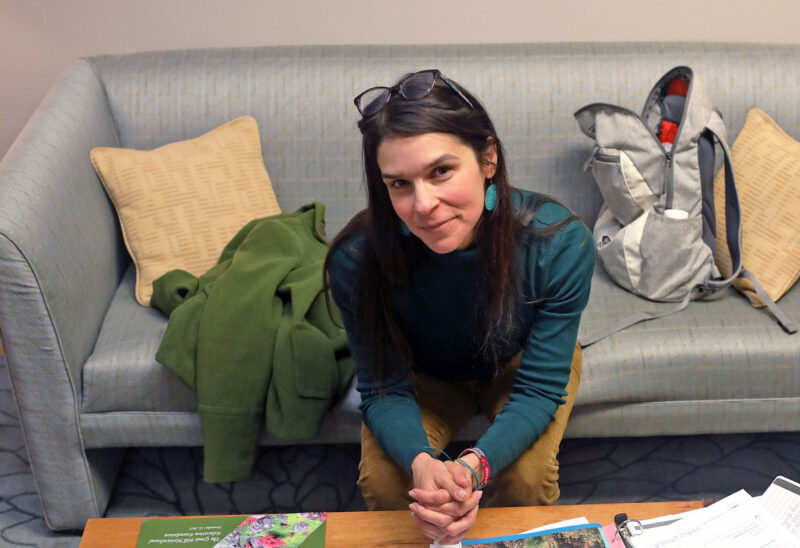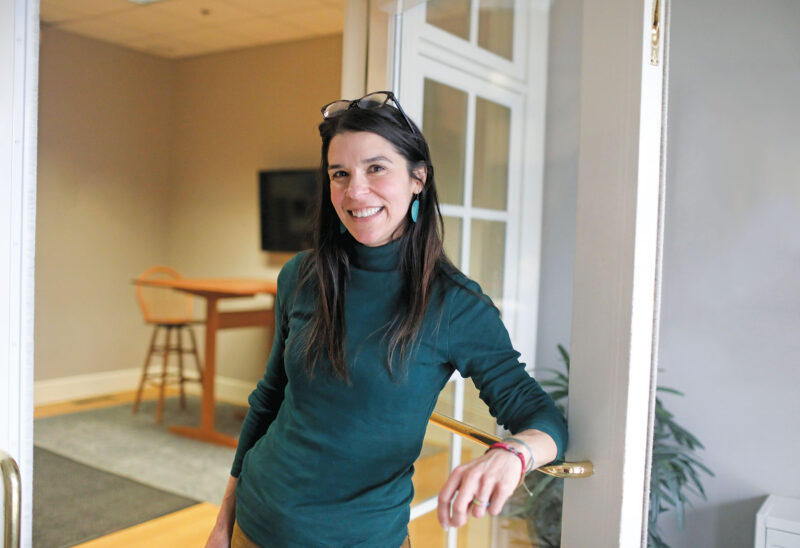The midwives, nurses and doctors were seeing an alarming trend.
Ten percent of babies born at North Conway’s Memorial Hospital were testing positive for exposure to opioids – and many of their moms had not had prenatal care. Here in the Mount Washington Valley, amid lush farmland and jagged mountains, the opioid crisis had hit – and hard.
And it was affecting the most vulnerable among us.
But what if, the midwives thought, they could get in front of that trend? What if they could get pregnant women struggling with addiction into medication-assisted treatment sooner, get them prenatal care, help them start to regain their health, and minimize babies’ in-utero exposure and post-partum stress? What if they could do all that in the context of wraparound services that offered group counseling, taught parenting skills and infant development, cooking and nutrition, and offered help with everything from housing applications to high-school-equivalency coaching and financial education?
The midwives drew up a proposal, which hospital administrators embraced.
Now, every week, some 15 pregnant and newly parenting women (and babies) spend most of the day Tuesday at the New Life Program at Memorial Hospital.
Grants from the Charitable Foundation are supporting the still-fledgling program. The grants were made possible by an anonymous donor who made a $3 million gift to the Foundation to be used to change outcomes for pregnant and newly parenting women and their babies affected by opioid and other substance use disorders. The New Life Program is the only one in the vast northern reaches of the state that combines such supports at a birthing hospital.
Funding from that $3 million gift is also being used to strengthen systems of care statewide, including supporting Dartmouth-Hitchcock Medical Center’s work in identifying and promoting best practices; funding social workers to work with pregnant and newly parenting moms at Concord Hospital and the Manchester Community Health Center; and funding other efforts around the state that help improve the health of moms and babies.
“Having this support system has changed everything,” said Kerri Rosado-Frye, who travels from more than an hour away to attend the New Life program with her 10-month-old daughter, Nylah Marie. When she talks about her daughter, Kerri’s face softens, and she beams. “She is perfect. She is the happiest, healthiest…just everything about her is perfect.”
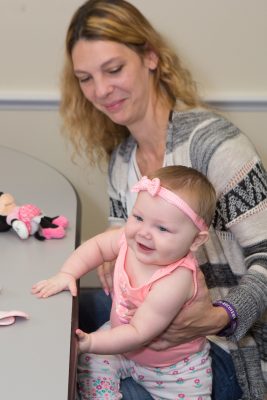
Kerri and Nylah
Kerri said she had been prescribed an opioid painkiller for a back injury, jump-starting an addiction that she hid from her family and employer even as she spiraled further downward. “I’m lucky I’m not dead,” she said.
She heard about the New Life program when she learned she was pregnant, and she enrolled.
Kerri’s best friend died from an overdose three days before Nylah was born.
Kerri said that the emotional support the program offers is key, as are the “routine, the regularity, the consistency and the rules” – and seeing all the healthy babies who come with their moms.
Midwife Lauren Hunter said that she and her colleagues are working hard to reach the women who need the program and get them to enroll. The shame many feel about being addicted and pregnant is a barrier, as is a fear that their babies may be taken from them. The point of the program, though, is to help women get well, help babies develop normally, and keep families together. New Life works closely with the state’s Division of Children, Youth and Families to demonstrate that the women in the program are not actively using drugs. One hundred percent of the participants in the program have gone home from the hospital with their babies, and moms remain in the program for a year or more after their babies are born. The state’s new “hub-and-spoke” system of care may help more women get the care they need through programs like New Life.
Research is showing that babies who have been exposed to opioids in utero and experience withdrawal symptoms after birth (“neonatal abstinence syndrome”) can, with the right support and treatment, recover fully and meet all normal developmental milestones. And that the best care for them, as is the case for any newborn, is close contact and bonding with mothers. Professionals stress the importance of proper treatment for moms of any co-occurring mental health conditions – like depression, anxiety or PTSD – for the ultimate healthy development of these babies.
“These women are scared,” Hunter said, “But once they come to us, they start to trust us and that is when we can make a really big difference. These women have had a lot of obstacles and have had a lot of people not to trust.”
Many have endured abuse, had parents who suffered from addiction, and many have grown up in poverty and experienced homelessness. In many cases, the women are learning skills in the New Life program that they never learned from their families.
“I would just love to say that you can’t help but love these women,” Hunter said of the participants in the New Life program. “They are really strong women that are changing their lives and we are really lucky to be a part of that. Women who are out there and aren’t in this program and need help, we would love to have them come to us.”
Wendy Conway, of Berlin, travels for almost an hour to get to the program every week. Her daughter Madilyn is six months old.
The New Life program, Wendy said, “takes a lot of dedication, but if you are willing to dedicate yourself to a life of sobriety and to New Life, you can do it and your life can get better.”
Madilyn is starting to scoot, and is eating solid food. “She is quite the character,” Wendy said.
“I want her to have the happiest and greatest life absolutely possible. I want her to go further than I ever have. I want her to achieve all of her dreams.”

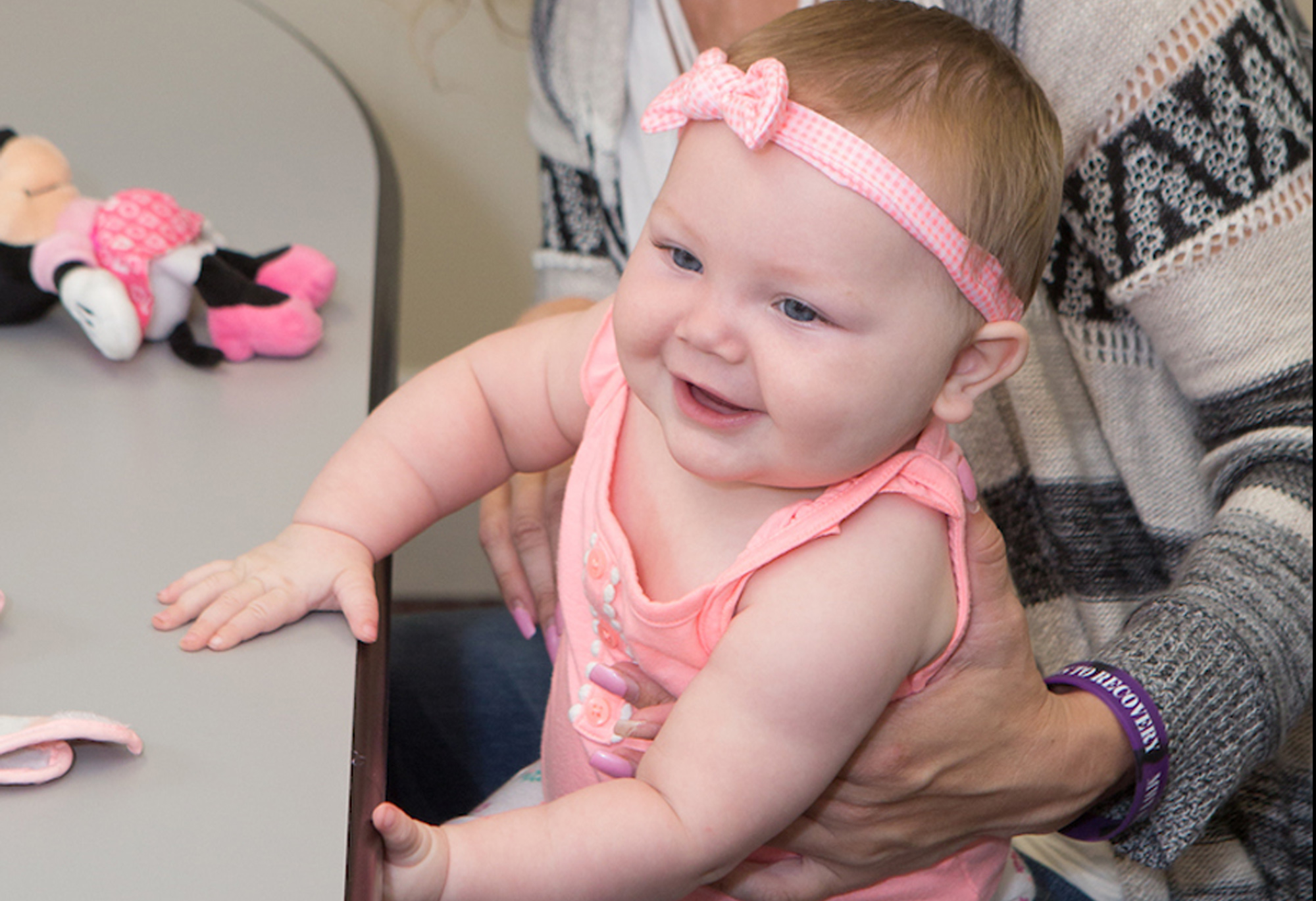





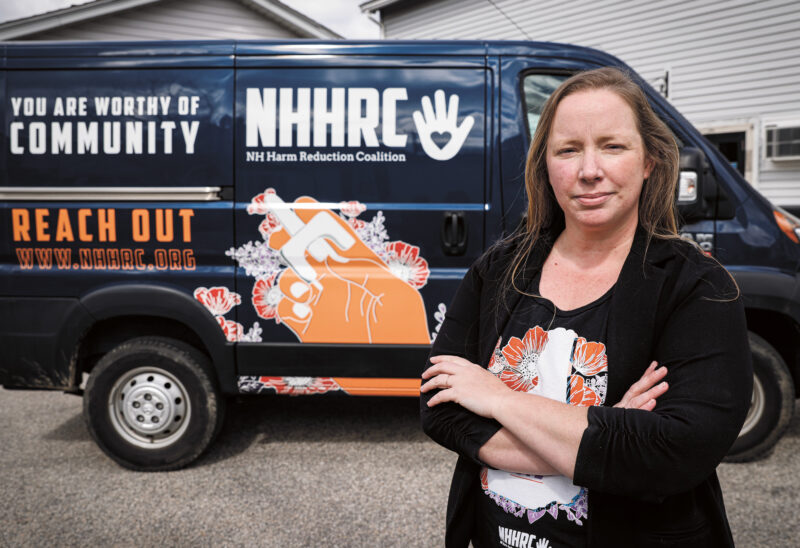
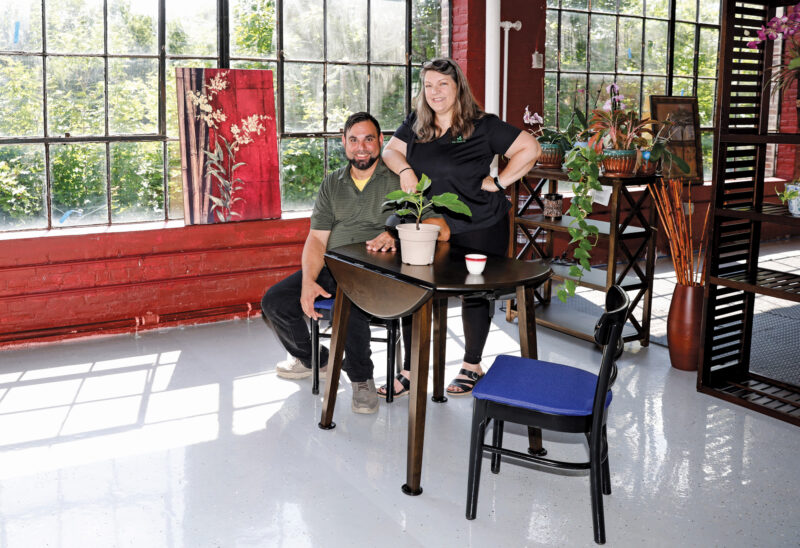
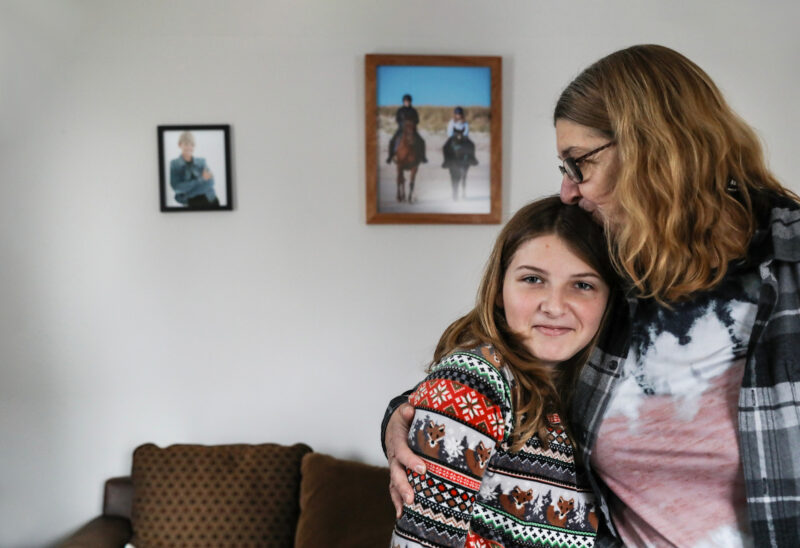

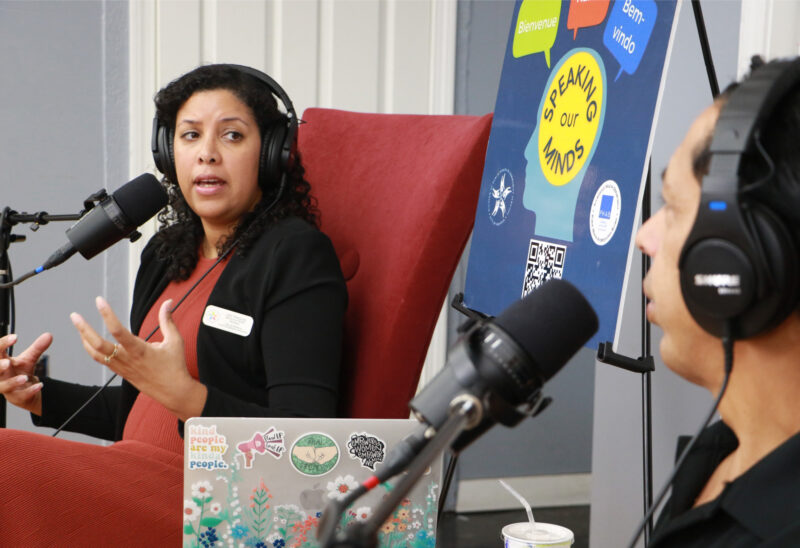
![Charitable Foundation President Dick Ober [Photo by Cheryl Senter]](https://www.nhcf.org/wp-content/uploads/2023/12/dick-ober-purpose-fall-winter-2023-800x548.jpg)
